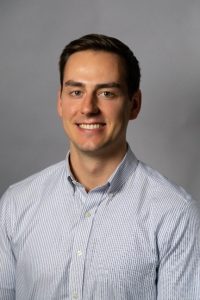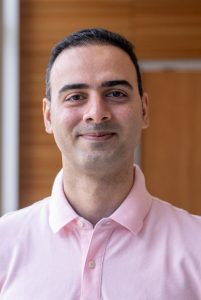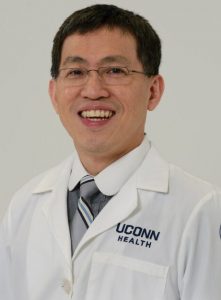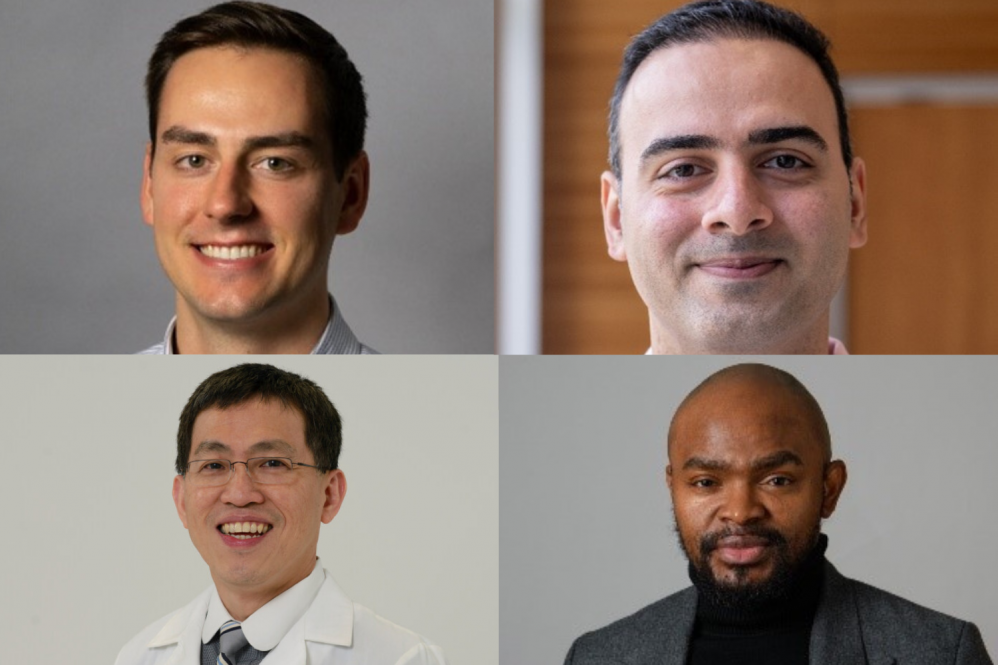The UConn Center on Aging has been home to the prestigious UConn Claude D. Pepper Older Americans Independence Center since 2021, one of 15 such centers of excellence, funded by the National Institute on Aging at NIH.
UConn’s Pepper Center champions advancements of aging research, along with the education and training of the next generation of geriatric medicine experts and scientists, to help more older adults maintain and restore their function and independence.
A key component of the UConn Pepper Center is the Research Education Component (REC). It awards grant funding and training to Pepper Scholars showing promise as independent research investigators.
The REC of the UConn Pepper Center, co-led by Dr. David Steffens and Dr. George Kuchel, includes the mentorship of Pepper Scholars by senior research leaders from across UConn and The Jackson Laboratory.
Each year, talented Pepper Scholars are competitively selected from among early-career researchers and faculty applications and funded to enhance their expertise in aging research as they advance the research field forward in Precision Gerontology, the focus of UConn’s Pepper Center. This pioneering field of geriatric medicine seeks to develop interventions that are more effective by better targeting growing differences between individuals that emerge with aging.
As Core Leader of the REC, Steffens, chair of the Department of Psychiatry at UConn School of Medicine, brings his considerable experience mentoring trainees and junior faculty interested in advancing careers in research.
Core co-leader Kuchel, director of the UConn Center on Aging at UConn Health, is a pioneer in the field of precision gerontology.
Each Pepper Scholar receives one to two years of research funding for his or her aging research project.
The work of the 15 NIH-funded “Pepper Centers” around the nation is in honor of Claude D. Pepper, the late congressman who advocated for senior health and research.
“The 2025 UConn Pepper Center Scholars are four amazing early-stage faculty who have so much promise and potential,” applauds Kuchel. “While the UConn Pepper Center grant is based at our UConn School of Medicine, we are grateful for the partnership of everyone across UConn and The Jackson Laboratory to support and mentor these young investigators to advance their aging science and the future of older adult care.”
2025 UConn Pepper Scholars

Madison L. Doolittle, Ph.D.
Assistant Professor, Center for Regenerative Medicine and Skeletal Development, UConn School of Dental Medicine
Doolittle’s laboratory focuses on the further characterization of context-dependent cellular senescence, a biological hallmark of aging, in the skeleton, as well as the interactions between senescent cells and immune cells within the bone microenvironment that may perpetuate inflammation and tissue dysfunction.
Research project focus: “Contextual immunomodulatory roles of senescence in skeletal aging or injury.”

Sasan Jalili, Ph.D.
Assistant Professor, The Jackson Laboratory for Genomic Medicine and Department of Immunology, UConn School of Medicine
Jalili leads innovative research at the intersection of biomedical engineering, microbiology, and immunology. Jalili’s laboratory employs cutting-edge technologies, such as microneedle skin patches, to evaluate the relationship between immune cell dynamics and microbiome changes in both mice and human skin at different stages of infectious and autoimmune diseases, as well as aging. His research integrates diverse omics data, including single-cell transcriptomics, metagenomics, and proteomics, to uncover cross-regulatory mechanisms underlying these conditions. Additionally, his team creates advanced organoid and organ-on-chip in vitro models to mimic human tissues and study host–microbiome interactions.
Research project focus: “Investigating Local Immune-Microbiome Interactions in Skin from Frail Older Adults Using Sampling Microneedle Patches.”

Jatupol Kositsawat, MD, D.M.Sc., MPH
Geriatrician, UConn Center for Healthy Aging and Geriatrics, Assistant Professor of Medicine, UConn Center on Aging and UConn School of Medicine
Kositsawat’s research focuses on the role of nutritional status in healthy aging, particularly in its association with vitamin D, inflammation, physical independence (primarily gait speed), and chronic medical conditions, such as diabetes. He has extensive experience in epidemiological research involving large datasets, including the National Health and Nutrition Examination Survey (NHANES), the Health, Aging and Body Composition Study (Health ABC), InChianti (Invecchiare in Chianti), and the UK Biobank.
Research project focus: “Effects of glucagon-like peptide-1 receptor agonists (GLP-1RAs) as gerotherapeutics on physical function in older adults with multimorbidity.”

Candi Nwakasi, Ph.D., MSPH
Assistant Professor in Human Development and Family Sciences in the College of Liberal Arts and Sciences at UConn Storrs and Affiliate Faculty of Africana Studies Institute.
Nwakasi is a co-founder of Black in Gerontology and Geriatrics (BIGG), an organization that works to amplify Black people’s voices and efforts in the aging field. His research focuses on identifying positive and negative effects of sociocultural and psychosocial factors on functional decline and cancer survivorship in underserved populations.
Research project focus: “Amassing Social (Dis)Advantages and Black Older Adults’ Mobility Functioning.”



